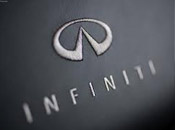2010 Infiniti FX50 Insurance Quotes
Trying to find better insurance rates for your Infiniti FX50? Finding the lowest cost insurance on the web can be challenging for beginners to comparing rates online. With a ridiculous number of insurance companies available, how can anyone effectively compare every company to locate the best available price?
Finding Insurance
Performing a rate comparison can be a lot of work if you don’t utilize the easiest way. You can waste hours talking about coverages with insurance companies in your area, or you can utilize online quoting to quickly compare rates.
Many popular insurance companies participate in a marketplace that allows shoppers to complete one form, and at least one company can give them a price based on that data. This saves time by eliminating quote requests to each company.
To find out how much you can save on insurance click to open in new window.
The only downside to getting quotes like this is you cannot specify the insurers to receive prices from. If you wish to select specific insurance companies to compare, we put together a list of companies who write insurance in your area. Click here to view list.
However you get your quotes, compare exactly the same coverage information on every quote you get. If each company quotes unequal deductibles or liability limits you will not be able to determine the lowest rate for your Infiniti FX50. Quoting even small variations in insurance coverages may result in large price differences. Just remember that comparing a large number of companies will increase your chances of finding the best rates.
When might I need an agent?
When buying adequate coverage for your vehicles, there really is no best way to insure your cars. Each situation is unique.
These are some specific questions may help highlight if your situation would benefit from professional advice.
- What happens if I owe more than my 2010 Infiniti FX50 is worth?
- Should I rate my 2010 Infiniti FX50 as pleasure use or commute?
- Am I covered when delivering products for my home-based business?
- Am I covered if I hit my neighbor’s mailbox?
- Is motorclub coverage worth it?
- Do I really need UM/UIM coverage?
If it’s difficult to answer those questions but a few of them apply, then you may want to think about talking to a licensed insurance agent. To find an agent in your area, fill out this quick form.
Auto insurance coverages and their meanings
Understanding the coverages of your auto insurance policy can help you determine the best coverages for your vehicles. The terms used in a policy can be confusing and even agents have difficulty translating policy wording.
Collision – Collision coverage pays to fix your vehicle from damage resulting from colliding with a stationary object or other vehicle. You have to pay a deductible then your collision coverage will kick in.
Collision can pay for claims such as backing into a parked car, driving through your garage door and damaging your car on a curb. Collision coverage makes up a good portion of your premium, so analyze the benefit of dropping coverage from lower value vehicles. It’s also possible to raise the deductible in order to get cheaper collision rates.
Uninsured Motorist or Underinsured Motorist insurance – Uninsured or Underinsured Motorist coverage provides protection from other drivers when they either are underinsured or have no liability coverage at all. Covered losses include medical payments for you and your occupants as well as your vehicle’s damage.
Due to the fact that many drivers carry very low liability coverage limits, their limits can quickly be used up. So UM/UIM coverage is important protection for you and your family.
Insurance for medical payments – Med pay and PIP coverage pay for expenses for things like nursing services, pain medications and rehabilitation expenses. The coverages can be used to fill the gap from your health insurance program or if you lack health insurance entirely. Medical payments and PIP cover not only the driver but also the vehicle occupants and will also cover if you are hit as a while walking down the street. Personal Injury Protection is not an option in every state but can be used in place of medical payments coverage
Comprehensive coverage (or Other than Collision) – Comprehensive insurance pays for damage caused by mother nature, theft, vandalism and other events. You first have to pay a deductible then the remaining damage will be covered by your comprehensive coverage.
Comprehensive coverage pays for things such as damage from getting keyed, a broken windshield, fire damage, damage from flooding and rock chips in glass. The highest amount you’ll receive from a claim is the market value of your vehicle, so if your deductible is as high as the vehicle’s value it’s probably time to drop comprehensive insurance.
Auto liability – Liability coverage will cover injuries or damage you cause to other people or property that is your fault. This coverage protects you against claims from other people. It does not cover your injuries or vehicle damage.
Coverage consists of three different limits, bodily injury for each person, bodily injury for the entire accident, and a limit for property damage. Your policy might show policy limits of 50/100/50 which stand for $50,000 bodily injury coverage, a total of $100,000 of bodily injury coverage per accident, and a limit of $50,000 paid for damaged property.
Liability insurance covers claims such as court costs, bail bonds, loss of income and medical expenses. How much liability should you purchase? That is your choice, but you should buy as much as you can afford.

